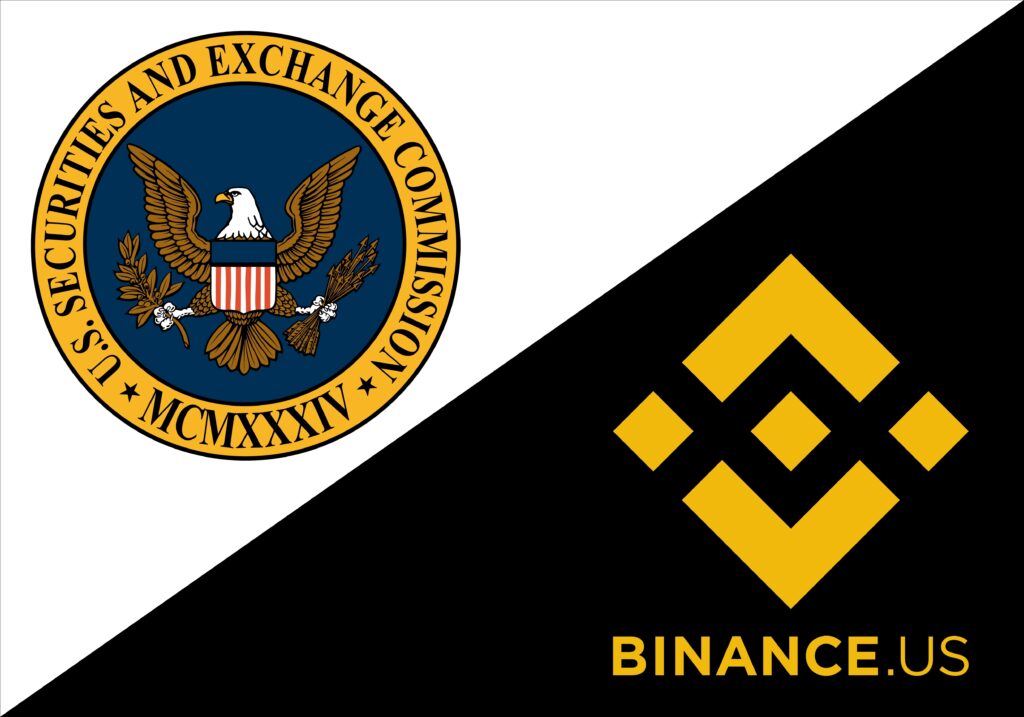The Aftermath of Binance’s Guilty Plea
Changpeng Zhao (CZ) pled guilty to charges from the U.S. Department of Justice (DOJ) and stepped down as the CEO of Binance. Binance faces a $4.3 billion fine, while CZ personally agreed to pay a $50 million fine with a potential 18-month prison term.
This article breaks down the entire legal saga of Binance and its aftermath. We’ll talk about what the future might look like for the company, how it affects investors, and what it all means for the crypto space.
Binance and Changpeng Zhao Pleads Guilty: What Happened?

The crypto industry experienced a significant shake-up when Changpeng Zhao, known as CZ, the CEO of Binance, pled guilty to serious charges from the U.S. Department of Justice (DOJ) and stepped down as the CEO of Binance.
This decision marks a major turning point for Binance, the largest crypto exchange by trading volume, and signals a new era of legal challenges for similar platforms.
Binance faced accusations of breaking anti-money laundering rules and being involved in illegal financial activities. The most concerning part was Binance’s failure to stop and report transactions linked to terrorist groups like Hamas, the Islamic State, and al Qaeda. The exchange also allowed over $890 million in transactions with Iran, ignoring U.S. sanctions. This kind of activity, which also involved other sanctioned areas like Cuba, Syria, and parts of Ukraine, showed a blatant disregard for U.S. laws.
The settlement with the DOJ requires Binance to pay a huge fine of $4.3 billion. CZ agreed to step down as CEO of Binance and has to pay a $50 million fine and might face up to 18 months in prison. The charges include money laundering, violating U.S. sanctions, and running an unlicensed money-transmitting business. By pleading guilty, Binance admitted to significant gaps in oversights in following regulations, especially in its early growth phase.
Zhao’s plea and resignation, coupled with the hefty fines, reflect a growing trend of regulatory bodies clamping down on crypto exchanges that operate in grey zones. The case of Binance and CZ is a lesson for the entire crypto industry about the need for compliance and transparency in this fast-evolving digital currency landscape.
Zhao’s Request to Leave the US
Following his plea, Changpeng Zhao asked a judge if he could leave the U.S. and go back to the United Arab Emirates. His lawyers said Zhao needed to go home for family reasons and to prepare for his court sentence. They pointed out that Zhao, who had already put down a big bail of $175 million, has been following all the legal steps and came back to the U.S. on his own to face the charges, showing he’s not likely to run away.
But even with these points, the U.S. Justice Department is worried. Given the lack of an extradition treaty with the UAE and Zhao’s significant assets, they think there is a risk of Zhao not returning for his sentencing.
Binance’s Legal Challenges Continue

Even after settling with the U.S. Department of Justice, Binance is far from out of the woods legally. The company is still dealing with lawsuits in the U.S., mainly from the Securities and Exchange Commission (SEC) and the Commodity Futures Trading Commission (CFTC) (though Binance did manage to settle its issues with the CFTC).
These cases raise serious concerns, like mixing up customer assets with the company’s funds and artificially inflating trading volume.
Binance seems ready to take on the SEC in court, showing confidence in its legal stance. They believe they can handle the SEC’s accusations, especially over whether cryptocurrencies should be treated as securities.
However, this legal fight with the SEC is already affecting Binance.US, Binance’s U.S. platform. Reports show a drop in both the value of assets and the number of users on Binance.US, which can be linked to the ongoing SEC case.
In an interview with Kitco, Cory Klippsten, an expert in the field, said that he believes Binance’s legal troubles with the SEC aren’t going away anytime soon. He speculates that the SEC’s investigations could reveal more problems, like issues with how Binance backs its assets.
This could mean big changes for Binance.US, including a possible shutdown or changes in ownership and management, potentially leading to a significant reduction in its business in the coming years, especially in the U.S. market.
What Does this Mean for Investors?
The crypto world is buzzing with talk, especially after Binance’s guilty plea and the dramatic fall of FTX last year. These events are big warning signs for investors, making them think twice before putting their hard-earned money into centralized crypto exchanges. And for those already on the fence about crypto, these scandals only add to the skepticism.
In the same interview with Kitco, Klippsten advised investors to take their money out of these exchanges, pointing out that there are just too many risks with centralized platforms.
Coffeezilla, a well-known YouTuber who investigates scams, especially in the digital and crypto worlds, shared similar views in one of his recent videos.
He further emphasizes the importance of not just taking things at face value in the crypto industry and criticizes those who quickly dismiss real worries as just FUD – Fear, Uncertainty, and Doubt. CZ was notorious for shrugging any concerns or allegations raised by others as FUD. Well, turns out, those worries had some weight after all.
For investors, it’s crucial, now than ever before, to look closely and critically at what’s happening rather than just dismissing worries based on uninformed optimism.
Binance’s Future
After Changpeng Zhao (CZ) stepped down, the company welcomed Richard Teng as its new CEO on November 21. Teng has a background in regional markets and is the former CEO of Abu Dhabi Global Market.
In a recent interview with CoinTelegraph, Teng has openly acknowledged Binance’s past missteps. He admits that Binance prioritized fast growth in its early stages, which left some legal and compliance gaps. But now, there’s a clear shift in focus.
Following the heavy penalties and settlements, Binance is under the microscope. The authorities have set strict compliance obligations, including having an independent monitor for three years. This move towards tighter regulation and oversight marks a significant change for Binance, which was known for its more relaxed controls.
There are questions about how these new compliance measures will impact the company’s earnings and appeal. Binance’s charm, in part, was due to its easygoing approach. Now, with stricter rules in place, it’s a waiting game to see how the company adapts and maintains its position in the market.
Financially, there are also doubts about Binance’s ability to handle the hefty $4.3 billion fine. How will this impact customer funds? Binance has shown proof of reserves, trying to reassure users. But skepticism remains, partly because there hasn’t been a full, transparent audit. The big question is: Can Binance pay this fine without dipping into customer assets? And how transparent will they be about their financial health moving forward?